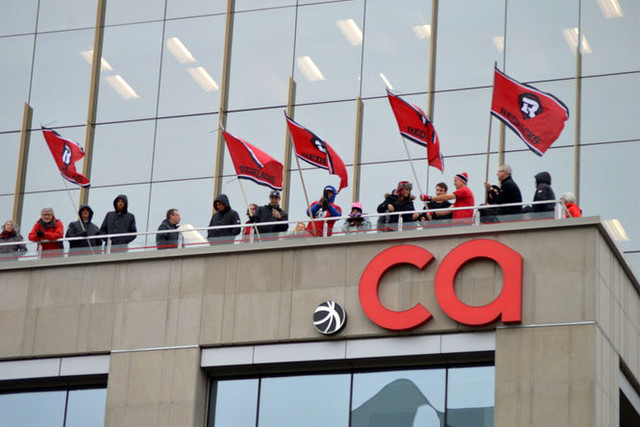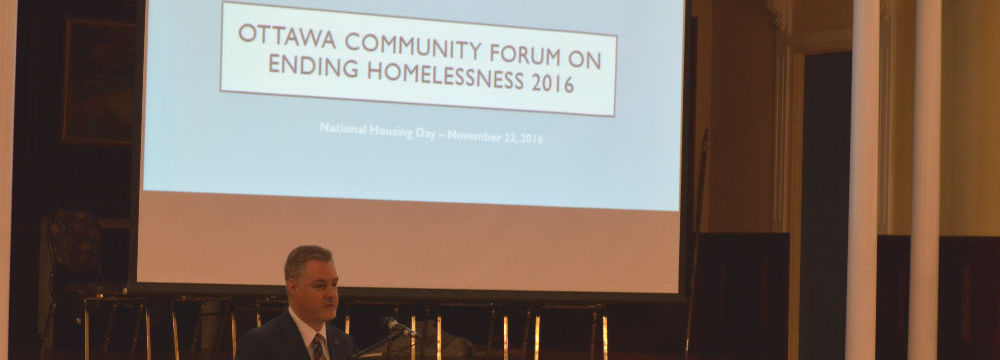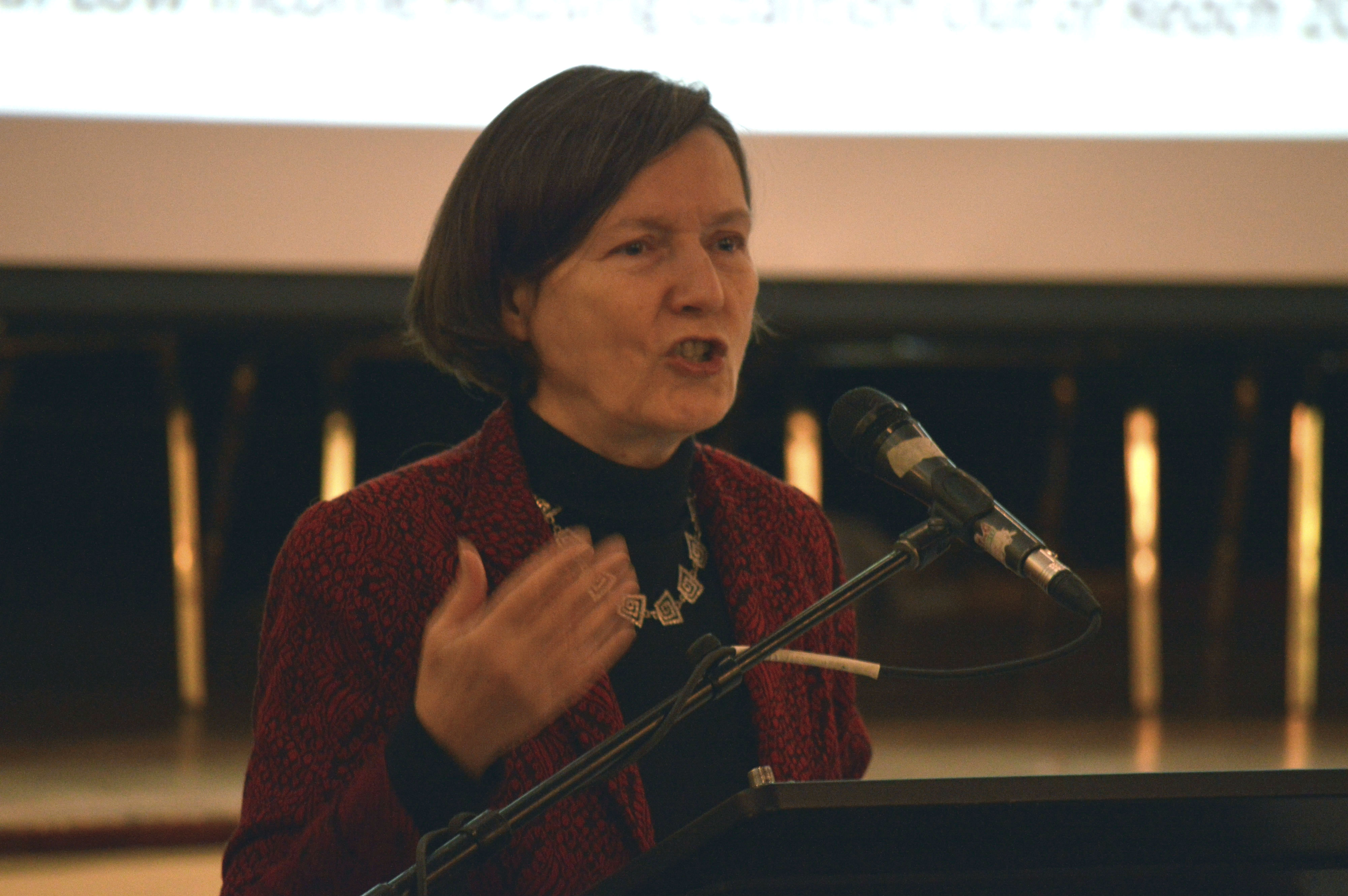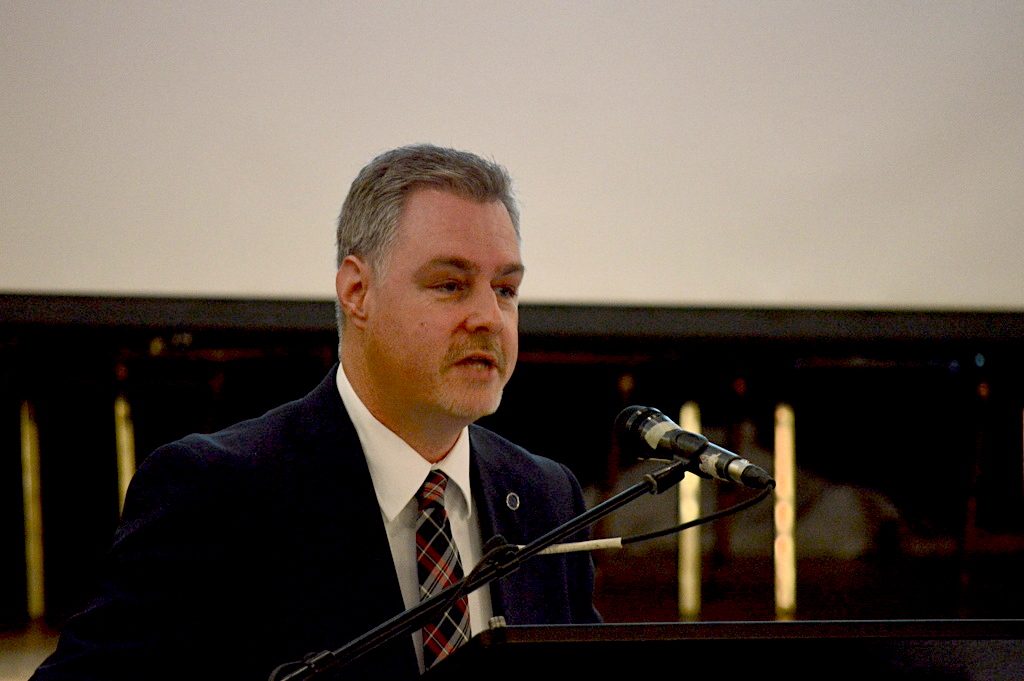The Ottawa Redblacks are bringing home a national icon for Canada’s 150th anniversary.
When the Redblacks defeated the Calgary Stampeders in a stunning overtime finish Sunday, they didn’t just win the Grey Cup. They won part of this nation’s culture, and a symbol of what the CFL means to Canada.
The James Street Pub erupts in joy as the Redblacks win the Grey Cup. Video by Matthew Olson.
The historic victory was all the sweeter for Ottawa as the city will play host to the 105th Grey Cup in 2017 as part of Canada’s sesquicentennial.
“It’s not just about gridiron football, it’s about bringing people together,” said Jeff McWhinney. “I think Grey Cup weekend brings out the best in people.”
As a keeper of the Grey Cup, McWhinney is one of a handful charged with taking care of the famous CFL trophy.
“If we are to define it perfectly, we are a trustee of the cup,” McWhinney said. But it is more to him than that: It is a responsibility that McWhinney takes very seriously, and he hopes that Canadians take it seriously, too.
“It’s not been watered down in any way; this was commissioned by Earl Grey over 100 years ago,” McWhinney said. “And we have a responsibility to maintain that honour, and the integrity that is really about our country. And we have to maintain the lines of respect that come along with the cup. It is a champion’s cup, it is a Canadian’s – it is a people’s cup, too.”
McWhinney’s passion comes from a personal place: his father, former CFL player Glenn “Keeper” McWhinney, won the Grey Cup in 1954. Glenn passed away in 2012 at the age of 81.
But having been around the Grey Cup for many years, there is an obvious connection for McWhinney between the Cup and Canada’s national identity.
“The Red Serge,” McWhinney said, of the Mounties who walk the cup onto the field to be awarded to the victors. “The Royal Canadian Mounted Police – no question, hands down … Watching these guys that are truly Canadian representation, holding our Canadian Holy Grail, and they surrender it that way – if people would see it that way, it’s beyond exciting. It’s magic.”
The fans in Ottawa share McWhinney’s enthusiasm for the game, and have waited a long time for successful football to return to the capital. The last time Ottawa won the Grey Cup it was 1976, and the team was still called the Rough Riders.
“Ottawa sports in general, we haven’t had a lot to celebrate in my lifetime,” said Paolo Del Rio, a long-time Ottawa sports fan and administrator of the fan website Defend the R.
A child of Italian immigrants to Canada, Del Rio was also drawn to the CFL by his father. Del Rio said football helped fulfill his father’s desire for sport when he first came to Canada, and helped his family embrace their new home.
“Coming to this country and having something to bring themselves into the community – it might sound cheesy, but it’s their way to feel Canadian,” Del Rio said. “If it made them feel Canadian, then it’s incumbent on me to pass that along to other people. If it’s that important to them, how could it not be equally important to me?”
The City of Ottawa, recognizing the importance of the Grey Cup to the city and to the country, worked hard to bring the championship game to Ottawa as part of the celebrations of Canada’s 150th in 2017.
City Councillor Mathieu Fleury, a co-chair of the City of Ottawa’s Task Force on Canada’s 150th Anniversary, called the Grey Cup a “showcase event” for the festivities.
“The more traditional Grey Cup parade, the events that go around the Grey Cup, I think it certainly builds an important environment for cities and communities to rally around not just the sport but the sport team.” Fleury said.
The CFL and the Grey Cup are part of a sports community that spans generations. And just like McWhinney and Del Rio, the players feel that connection. When Ottawa’s MVP quarterback Henry Burris was asked how he felt after the match was over, his first response wasn’t about the game.
“There’s my parents right there,” said Burris with a huge grin, looking into the crowd. “That’s what it’s all about. That’s what it’s all about.”




